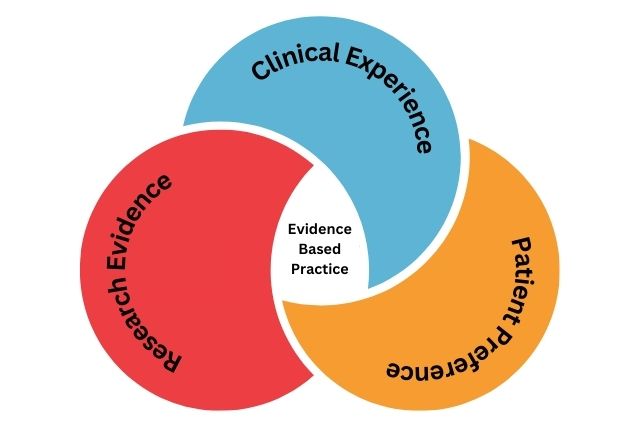
The Transformation of Nursing Education
Nursing education has undergone a remarkable transformation with the integration of digital technologies. The traditional model, centered around classrooms and textbooks, has evolved into a dynamic and tech-infused learning environment.
This shift reflects the changing landscape of healthcare and the need for nurses equipped with digital literacy skills.
Embracing Technology in Nursing Education

The integration of technology in nursing education is not just a trend; it is a necessity. Embracing technology enhances the learning experience for nursing students by providing interactive simulations, virtual patient scenarios, and access to a wealth of online resources. This shift empowers students to engage with content in more immersive and practical ways.
Innovations in Nursing Education
Innovations in nursing education are diverse, ranging from virtual reality (VR) simulations for hands-on training to online platforms that facilitate collaborative learning.
E-learning modules, mobile applications, and gamification techniques are also being employed to make complex nursing concepts more accessible and engaging. These innovations aim to prepare nursing students for the evolving challenges of modern healthcare.
Challenges of Digital Nursing Education
While digital innovations in nursing education are promising, they come with their set of challenges. Access to technology, concerns about data security, and the need for faculty training are common hurdles.
Additionally, striking a balance between technology use and maintaining the essential humanistic aspects of nursing education poses a unique challenge.
Adapting to the Future
Adapting to the future of nursing education involves addressing challenges through strategic planning and continuous improvement.

This includes investing in infrastructure to ensure equitable access to technology, providing ongoing professional development for educators, and refining digital content to align with evolving healthcare needs.
The Impact on Nursing Practice
The impact of digital education on nursing practice is substantial. Nurses educated in the digital age are more adept at utilizing electronic health records, telehealth technologies, and other digital tools integral to modern healthcare delivery.
This enhanced digital literacy contributes to improved patient care, streamlined workflows, and increased efficiency in healthcare settings.
Conclusion
In conclusion, the digital age has ushered in a new era for nursing education, marked by innovation and adaptation. The integration of technology not only enhances the learning experience for nursing students but also equips them with essential skills for navigating the complexities of contemporary healthcare. As nursing education continues to evolve, the synthesis of technology and humanistic principles will be crucial in shaping the nurses of the future.
FAQs:
How has technology impacted nursing education?
Technology has impacted nursing education by transforming traditional learning approaches. Virtual simulations, online resources, and interactive learning tools have made education more accessible and engaging. Technology prepares nursing students for the digital landscape of modern healthcare.
What are the challenges of digital nursing education?
Challenges of digital nursing education include issues of access to technology, concerns about data security, and the need for faculty training. Striking a balance between technology use and preserving the humanistic aspects of nursing education is also a challenge.
What role do educators play in the digital transformation of nursing education?
Educators play a pivotal role in the digital transformation of nursing education. They need to adapt to new technologies, design effective digital learning experiences, and provide guidance to students in navigating the digital landscape. Continuous professional development is essential for educators to stay current in the rapidly evolving field.
How does digital education enhance nursing practice?
Digital education enhances nursing practice by equipping nurses with essential digital literacy skills. This includes proficiency in electronic health records, telehealth technologies, and other digital tools used in healthcare settings. Enhanced digital literacy contributes to improved patient care, streamlined workflows, and increased efficiency.
What skills do nurses need to be successful in the digital age of healthcare?
Nurses need a range of skills to be successful in the digital age of healthcare. These include proficiency in using electronic health records, telehealth technologies, data analysis tools, and a general comfort with adapting to new digital platforms. Critical thinking, problem-solving, and effective communication skills remain foundational in this digital era.
You may also like
What is the most comfortable shoe for nursing?
As a nurse, your feet are your most valuable asset. They carry you through long…
Dansko Women’s Professional Tooled Clog Review
An Overview over the Dansko Women’s Professional Tooled When we talk about the comfortable shoe…
Nursing Research and Evidence-Based Practice: Advancing Healthcare Outcomes
The Essence of Nursing Research Nursing research is the driving force behind evidence-based practice, representing…
Nursing Specializations: Choosing Your Path in the Diverse Field of Nursing
Nursing Specializations Nursing includes many specializations, each addressing specific healthcare needs. These roles allow nurses…
Which are the Best Shoes for Plantar Fasciitis to Wear as a Nurse or in General
Spoiler alert: We know that this guide is about the best shoes for Plantar Fasciitis…
How to Choose the Right Nursing Specialty for You
The nursing field is continuously changing and especially in the world today, there is more…






